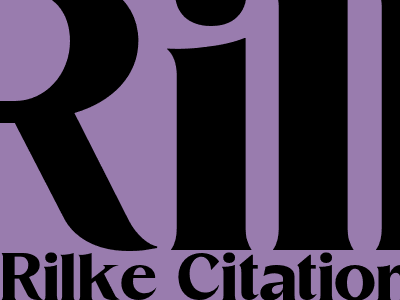Rilke's Legacy: A Comprehensive Examination of His Enduring Impact on Literature and Thought
Introduction
Rainer Maria Rilke, an Austrian poet, and writer, is widely recognized as one of the most influential figures in modern literature. His profound insights into the human experience, existential themes, and the nature of art have captivated readers for over a century. This comprehensive analysis explores Rilke's enduring impact on literature and thought, examining his major works, philosophical perspectives, and the ways in which his ideas continue to shape contemporary culture.
Major Works and Themes
Rilke's literary output encompasses a diverse range of works, including poetry, prose, and drama. His most celebrated work, The Sonnets to Orpheus, is a collection of 55 sonnets that explore the transformative power of art and the role of the poet as a conduit between the visible and invisible worlds. Other notable works include The Book of Hours, New Poems, and Duino Elegies, each exploring themes of loss, beauty, and the search for meaning in a rapidly changing world.
Philosophical Perspectives
Rilke's philosophical outlook is characterized by a deep understanding of the human condition and the interconnectedness of all things. He believed that art had the potential to transcend the boundaries of the self and connect individuals to a larger spiritual realm. Rilke's emphasis on the transformative power of suffering and the importance of living in the present moment have resonated with readers across generations.
Influence on Literature and Thought
Rilke's influence on literature is evident in the works of numerous writers, including W.H. Auden, T.S. Eliot, and Sylvia Plath. His exploration of existential themes, such as the search for meaning, the nature of suffering, and the transience of life, has profoundly shaped modern literature. Rilke's emphasis on the importance of introspection and authenticity has also left an enduring mark on the development of psychology and psychotherapy.
Contemporary Relevance
In today's rapidly changing world, Rilke's ideas remain as relevant as ever. His insights into the human experience and the power of art offer a source of solace and inspiration in an increasingly fragmented and uncertain world. His emphasis on the importance of living authentically and embracing the beauty of the present moment resonates with readers seeking meaning and purpose in a complex and often overwhelming world.
Conclusion
Rainer Maria Rilke's enduring impact on literature and thought is undeniable. His profound insights into the human experience, existential themes, and the nature of art have captivated readers for over a century. Rilke's major works, philosophical perspectives, and emphasis on the transformative power of art continue to shape contemporary culture and offer a source of inspiration and guidance in today's rapidly changing world.

Komentar